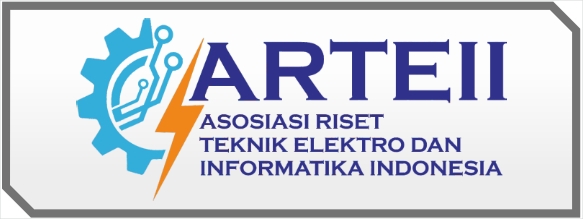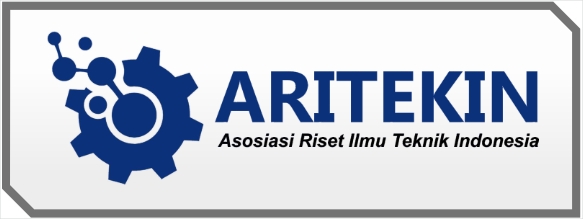Analisis Implementasi Teknologi Blockchain dalam Meningkatkan Transparansi dan Kepercayaan di Sektor Keuangan di Indonesia
DOI:
https://doi.org/10.59581/jusiik-widyakarya.v2i4.4158Keywords:
Blockchain, Decentralization, Trust, Financial Sector, TransparencyAbstract
The background of this study is based on the challenges currently being faced by the Indonesian financial sector in terms of transparency and trust. Various cases that often occur such as data manipulation, fraud, and lack of accountability in the financial transaction process have drastically reduced public trust in financial institutions. Blockchain technology here is present as one of the potential solutions to overcome this problem, by offering a decentralized, transparent, and immutable financial recording system. This study aims to analyze the implementation of blockchain technology in increasing transparency and trust in the Indonesian financial sector. The research method used is qualitative with the Systematic Literature Review (SLR) approach. This research was conducted by collecting and analyzing relevant literature related to the implementation of blockchain in the financial sector, especially in Indonesia. The analysis process was carried out using the content analysis method in order to identify the benefits, challenges, and impacts of blockchain implementation on transparency and public trust. The results of the study show that blockchain has great potential in increasing transparency in the financial sector, by reducing the risk of data manipulation and increasing operational efficiency. However, several challenges are still faced, such as inadequate regulations, uneven technological infrastructure, and low digital literacy in the community. This study emphasizes the need for collaboration between the government, financial institutions, and the community to create an ecosystem that supports the widespread adoption of blockchain technology. With a collaborative approach, blockchain is expected to contribute significantly to strengthening a more transparent, accountable, and highly competitive financial ecosystem in the future. In addition, this study provides an understanding of the readiness of the Indonesian financial sector in facing technological changes and innovation opportunities in the future.
References
Arwani, A., & Priyadi, U. (2024). Eksplorasi Peran Teknologi Blockchain dalam Meningkatkan Transparansi dan Akuntabilitas dalam Keuangan Islam: Tinjauan Sistematis. Jurnal Ekonomi Bisnis Dan Manajemen, 2(2), 23–37. https://doi.org/10.59024/jise.v2i2.653
Babbar, S., Koufteros, X., Bendoly, E., Behara, R., Metters, R., & Boyer, K. (2020). Looking at ourselves: Lessons about the operations management field learned from our top journals. Journal of Operations Management, 66(3), 349–364. https://doi.org/10.1002/joom.1081
Cory, V., Hendra, E., Santoso, S., & ... (2021). What Blockchain Technology Can Do to Contribute to Waqf. Al-Afkar, Journal For …, 4(1), 53–71.
Creswell, J. W., & Creswell, J. D. (2018). Mixed Methods Procedures. In Research Defign: Qualitative, Quantitative, and Mixed M ethods Approaches.
Daffa, M., Nurkhin, A., Maghfira, N. A., & Wedadjati, R. S. (2024). The Influence Of The Perception Of Business Actors About Accounting, Accounting Knowledge And Business Scale On The Use Of Accounting Information For MSMEs In The Special Region Of Yogyakarta. Jurnal Ekonomi, 13(2), 541–554. https://doi.org/10.54209/ekonomi.v13i02
Fahlevi, M., Vional, & Pramesti, R. M. (2022). Blockchain technology in corporate governance and future potential solution for agency problems in Indonesia. International Journal of Data and Network Science, 6(3), 721–726. https://doi.org/10.5267/j.ijdns.2022.3.010
Hakim, A. (2020). Cadar dan Radikalisme Tinjauan Konsep Islam Radikal Yusuf Qardhawi. Ijtimaiyya: Jurnal Pengembangan Masyarakat Islam, 13(1), 103–116.
Hartoyo, A., Sukoharsono, E. G., & Prihatiningtyas, Y. W. (2021). Analysing the Potential of Blockchain for the Accounting Field in Indonesia. Jurnal Akuntansi Dan Keuangan, 23(2), 51–61. https://doi.org/10.9744/jak.23.2.51-61
Hasan, S. A., Al-Zahra, W. N., Auralia, A. S., Maharani, D. A., & Hidayatullah, R. (2024). Implementasi Teknologi Blockchain dalam Pengamanan Sistem Keuangan pada Perguruan Tinggi. Jurnal MENTARI: Manajemen, Pendidikan Dan Teknologi Informasi, 3(1), 11–18. https://doi.org/10.33050/mentari.v3i1.546
Husriadi, Muh., Bahar, H., & Windayani, W. (2024). Critical Review of the Use of Blockchain Technology in Improving Msme Data Transparency and Security. Journal of Finance, Economics and Business, 3(1), 53–60. https://doi.org/10.59827/jfeb.v3i1.107
Indraprakoso, D., & Haripin. (2023). Eksplorasi Potensi Penggunaan Blockchain Dalam Optimalisasi Manajemen Pelabuhan di Indonesia: Tinjauan Literatur. Sanskara Manajemen Dan Bisnis, 1(03), 140–160. https://doi.org/10.58812/smb.v1i03.131
Iskamto, D., & Juariyah, L. (2023). Blockchain Technology Challenge in the Future: Data Security and Efficiency. International Journal of Law Policy and Governance, 2(2), 65–76.
Jameaba, M. (2024). Digitalization, Emerging Technologies, and Financial Stability: Challenges and Opportunities for the Indonesian Banking Sector and Beyond. SSRN Electronic Journal, April. https://doi.org/10.2139/ssrn.4808469
Judijanto, L. (2023). Implementation of Blockchain Technology in Improving Transparency of Public Services: A Case Study on Government Service Delivery in Indonesia. West Science Information System and Technology, 1(02), 63–71. https://doi.org/10.58812/wsist.v1i02.477
Lisdayanti, A. (2024). Peran Teknologi Blockchain dalam Meningkatkan Kepercayaan Konsumen dan Keamanan Data Privasi pada Platform E-Commerce di Indonesia. Jurnal Manajemen Bisnis Dan Keuangan, 5(2), 347–361.
Martina, L. (2024). Analisis Penerapan Teknologi Blockchain Pada Pemenuhan Kebutuhan Pangan Dalam Sektor Industri Pertanian Analysis of The Application of Blockchain Technology in Meeting Food Needs In The Agricultural Industry Sector. Journal Agrifoodtech, 3(1), 22–31.
Misran, Syaifuddin, Muhammad, A. N., & Khadafi, R. (2022). A Meta-Analysis of Big Data Security : Using Blockchain for One Data Governance , Case Study of Local Tax Big Data in Indonesia. Proceedings of the International Conference on Public Organization, 209(Iconpo 2021), 198–206.
Mounira, B. (2020). Blockchain Technology Applications in the Islamic Financial Industry-The Smart Sukuk of Blossom Finance’s Platform in Indonesia Model. Economic Sciences, Management and Commercial Sciences Review, 02, 309–325.
Muhtadibillah, A., Rawat, B., & Sentosa, B. M. (2024). Jurnal MENTARI : Manajemen Pendidikan dan Teknologi Informasi Motivasi Organisasi dalam Mengadopsi Teknologi Blockchain : Suatu Tinjauan Literatur dan Analisis Kualitatif. Jurnal MENTARI: Manajemen Pendidikan Dan Teknologi Informasi, 2(2), 188–196.
Permatasari, N. (2024). Penerapan Teknologi Blockchain Dalam Pelayanan Publik: Meningkatkan Keamanan, Transparansi, Dan Kepercayaan Masyarakat Melalui Website Onlinepajak. Jurnal Ilmiah Wahana Pendidikan, 10(14), 764–773.
Putra, R. H. (2024). Analisis Penggunaan Teknologi Blockchain Pada Pengelolaan Zakat Upaya Meningkatkan Lembaga Keuangan Perbankan Syariah. Jurnal Ekonomi Syariah Indonesia, 14(2), 318–332. https://doi.org/10.21927/jesi.3124.3483
Putro, A. N. S., Mokodenseho, S., Hunawa, N. A., Mokoginta, M., & Marjoni, E. R. M. (2023). Enhancing Security and Reliability of Information Systems through Blockchain Technology: A Case Study on Impacts and Potential. West Science Information System and Technology, 1(01), 35–43. https://doi.org/10.58812/wsist.v1i01.166
Rijal, S., & Saranani, F. (2023). The Role of Blockchain Technology in Increasing Economic Transparency and Public Trust. Technology and Society Perspectives (TACIT), 1(2), 56–67. https://doi.org/10.61100/tacit.v1i2.51
Saputra, U. W. E., & Darma, G. S. (2022). The Intention to Use Blockchain in Indonesia Using Extended Approach Technology Acceptance Model (TAM). CommIT Journal, 16(1), 27–35. https://doi.org/10.21512/commit.v16i1.7609
Setyowati, M. S., Utami, N. D., Saragih, A. H., & Hendrawan, A. (2020). Blockchain technology application for value-added tax systems. Journal of Open Innovation: Technology, Market, and Complexity, 6(4), 1–27. https://doi.org/10.3390/joitmc6040156
Sugiyono, Prof. DR. (2019). Buku sugiyono, metode penelitian kuantitatif kualitatif. In Revista Brasileira de Linguística Aplicada (Vol. 5, Issue 1).
Sugiyono. (2021). Metode Penelitian Kuantitaif, Kualitatif, R&D. Alfabeta.
Suryawijaya, T. W. E. (2023). Memperkuat Keamanan Data melalui Teknologi Blockchain: Mengeksplorasi Implementasi Sukses dalam Transformasi Digital di Indonesia. Jurnal Studi Kebijakan Publik, 2(1), 55–68. https://doi.org/10.21787/jskp.2.2023.55-68
Waloyandari, M. J., & Tyas, A. M. (2024). Pengaruh Teknologi Blockchain Terhadap Kepercayaan Investor dalam Pengambilan Keputusan Investasi. Ranah Research : Journal of Multidisciplinary Research and Development, 6(5), 1385–1393. https://doi.org/10.38035/rrj.v6i5.978
Zulfikri, Z., Kassim, S., Sa’ad, A. A., & Othman, A. H. A. (2022). Trust Enhancement in Zakat Institutions using Blockchain Technology: A Qualitative Approach. EJIF (European Journal of Islamic Finance), 31–36. https://doi.org/10.13135/2421-2172/6312
Downloads
Published
How to Cite
Issue
Section
License
Copyright (c) 2024 Jurnal Sistem Informasi dan Ilmu Komputer

This work is licensed under a Creative Commons Attribution-ShareAlike 4.0 International License.













